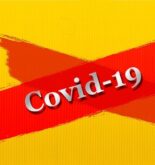Original Source: https://www.ibtimes.com/who-controls-internet-us-government-hands-over-control-icann-2425491
Since the dawn of the Internet, the world wide web has been controlled by the U.S. government’s Commerce Department. As of Saturday, the American government is no longer in charge despite the efforts of conservative lawmakers.
Instead, an almost 20-year-old California-based “multi-stakeholder” nonprofit, called the Internet Corporation for Assigned Names and Numbers (ICANN), is in control.
ICANN was created by the Department of Commerce in 1998 and was given a government contract to manage the Internet. The long-term government goal in creating ICANN—which is made up of governments around the globe, corporations, and individual Internet users—was to eventually give the multinational organization full ownership of domain name systems.
A domain name system (DNS) on the Internet ensures a specific URL leads to the correct servers and pulls up a specific website. The information (names, numbers, etc) that allows the DNS to do its job is saved in one major file known as the Internet Assigned Numbers Authority (IANA).
Since ICANN’s creation, it has been overseeing how web addresses on the Internet are passed out and have been regulating the IANA. Now, it formally owns the IANA.
“Ultimately, the transfer of IANA to ICANN is more of a formality than a real change of policy. But it’s an important formality,” wrote Wired. “The fact that the U.S. government had the final say over the domain name system never sat well with the rest of the world, especially after 2013 when Edward Snowden revealed the scope of U.S. Internet surveillance. Severing that last tie to the US will allow foreign governments and companies to have confidence that the Internet is outside of the U.S.’ control.”
Politicians who opposed the handover—the quest to keep the technical management of the Internet in U.S. control is led by Texas Sen. Ted Cruz, who has previously called the handover a “giveaway of our Internet freedom”—argue that online freedom is in jeopardy and allege that authoritarian governments who are members of ICANN can inhibit freedom of speech on the Internet. According to Cruz, “foreign governments and global corporations will have an increased voice within ICANN moving forward,” which can allow them to censor speech.
ICANN begs to differ, arguing that the U.S. government never had the ability to control speech and no other nation will gain such power.
“The U.S. government has never, and has never had the ability to, set the direction of the community’s policy development work based on First Amendment ideas,” said ICANN in a statement. “Yet that is exactly what Senator Cruz is suggesting. The U.S. government has no decreased role. Other governments have no increased role. There is simply no change to governmental involvement in policy development work in ICANN.”
Those in favor—the likes of tech companies, experts, and academics—maintain that keeping the Internet global and an open space requires having an open dialogue between nations around the world and it is essential to have multiple countries involved in the management. ICANN includes a Government Advisory Committee, which has representation from 111 states around the world, including 108 UN members and the Holy See, the Cook Islands, and Taiwan.




